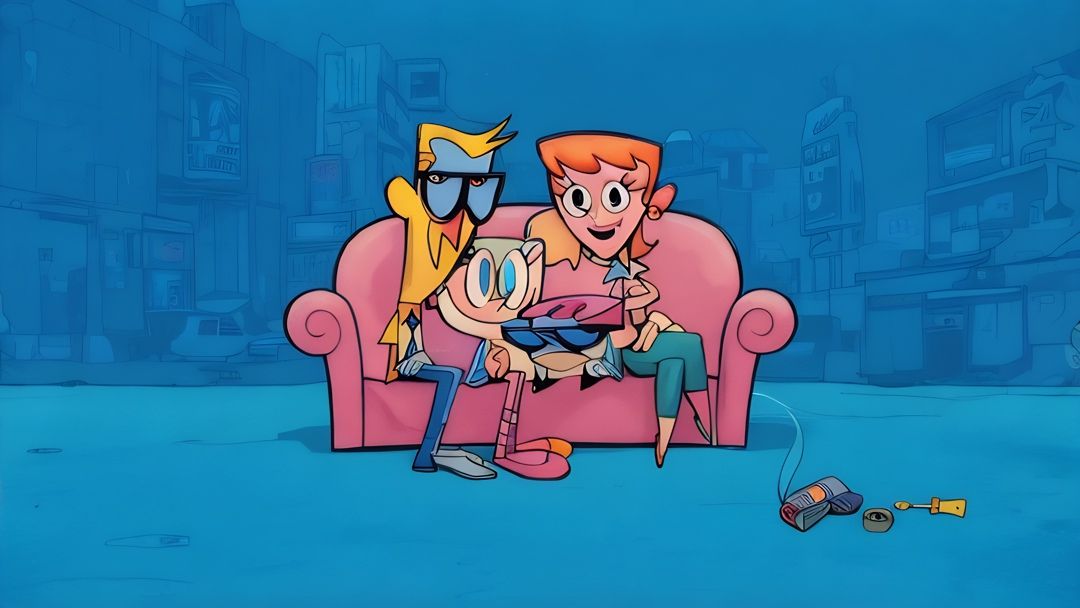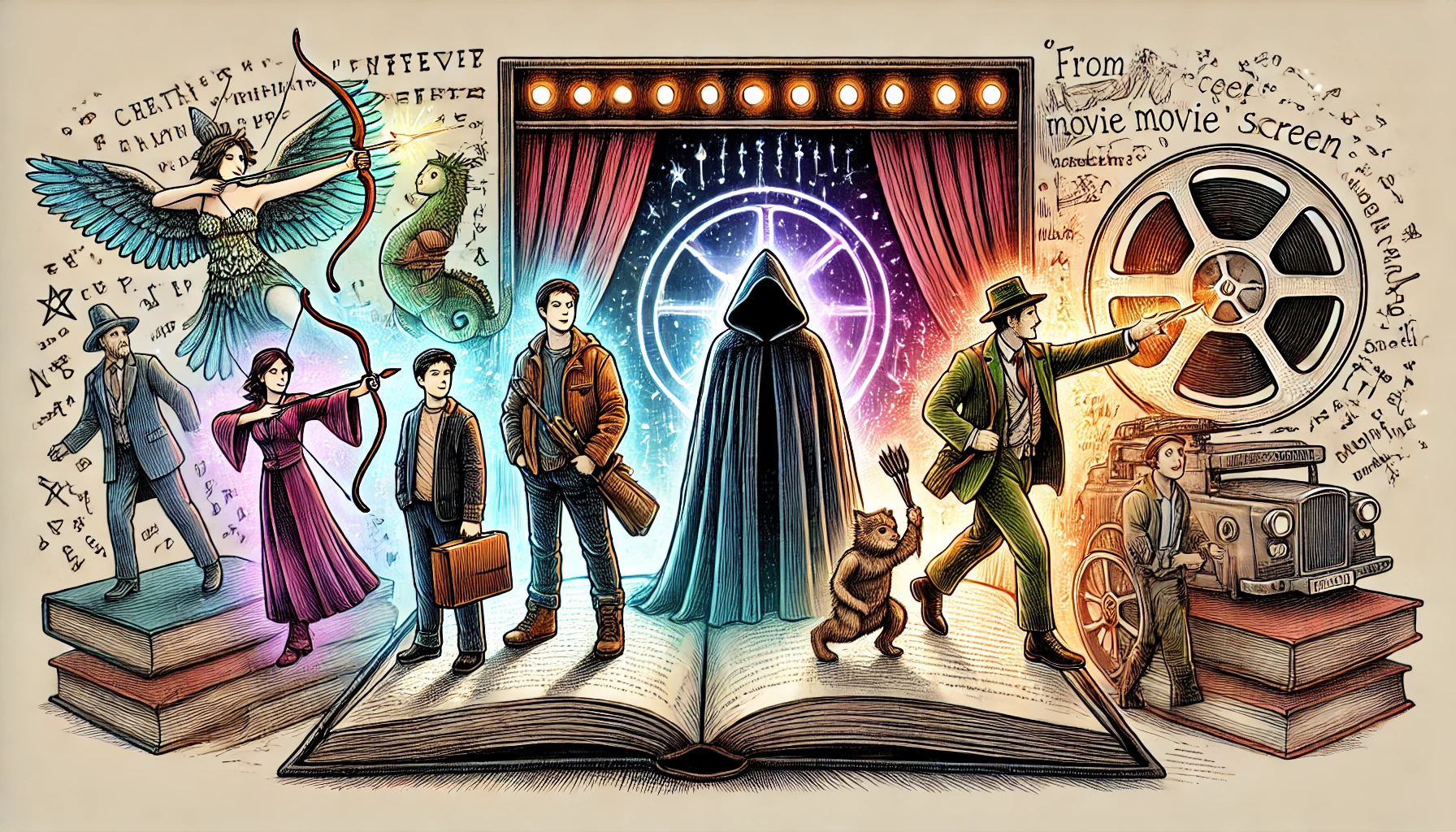Dexter Origins: The Secret History of the World’s Most Brilliant Boy Genius
Before there was a secret lab. Before the omelette du fromage incident. Before the red gloves, the thick glasses, and the endless cries of “Dee Dee! Get out of my laboratory!”—there was just a kid. A curious, misunderstood, and wildly precocious kid named Dexter. While Dexter’s Laboratory often drops us right into the middle of his chaotic inventions and Dee Dee-inflicted disasters, fans have long wondered: How did Dexter become Dexter? What sparked this boy’s obsession with science, secrecy, and control? Beneath the zany animation and techno-babble is a backstory that is far more fascinating—and even a little emotional—than it first appears. This is Dexter’s origin story: an imaginative deep dive into how a small boy with a giant brain came to build the greatest laboratory in cartoon history.
A Curious Mind in a Conventional World
Dexter’s early life is never fully explored in a linear fashion in the series, but like all great origin stories, it’s written between the lines. From the very first episode, we understand one thing about Dexter—he doesn’t fit in. While other kids are riding bikes and playing tag, Dexter is inside soldering circuits and building hovercrafts. He exists in a different frequency, tuned to the quiet hum of machinery and the elegant chaos of theoretical physics. His genius isolates him from the world even as it fuels him.
Dexter was likely born into a warm but extremely conventional family. His mother, a cheerful, 1950s-style homemaker obsessed with cleanliness, runs the house with a smile and a vacuum hose. His father, a dopey but loving man-child, spends his free time watching wrestling and getting excited about snacks. Neither of them notices that their son is a once-in-a-generation intellect with a lab beneath his room—and that alone says everything about the environment in which Dexter was raised.
This familial obliviousness creates the central conflict of Dexter’s childhood. His brilliance goes unrecognized by those closest to him, leaving him no choice but to retreat into his imagination—and ultimately, into the construction of his secret lab. He doesn’t just build gadgets; he builds a sanctuary, a world where he can be understood, challenged, and in control.
Dee Dee: The Uninvited Catalyst
As much as Dexter defines himself through science, he’s equally shaped by his sister Dee Dee. She is his opposite in every way: tall to his short, carefree to his intense, emotional to his analytical. She is the chaos to his order, the heart to his head. And while she may drive him to the edge of madness, she also defines his childhood more than any equation or experiment.
From a psychological standpoint, Dee Dee represents everything Dexter can’t control. She barges into his lab without warning, touches his experiments, and often accidentally triggers massive disasters. But she also brings life, unpredictability, and—even if Dexter would never admit it—joy to his otherwise sterile world.
There’s an origin story buried in that dynamic. It’s easy to imagine a younger Dexter, first discovering his love for building, only to have Dee Dee crash through his block towers or hijack his chemistry set. At first, the lab may have been born out of necessity—to escape Dee Dee’s interference. But over time, it becomes something more: a fortress of solitude, a representation of the internal world of a brilliant but emotionally overwhelmed child.
The Birth of the Lab: From Dream to Reality
Dexter’s laboratory is more than just a cool set piece—it’s a character in itself, and perhaps the truest window into Dexter’s soul. Though the series never spells out exactly when or how the lab came into existence, it clearly began as an outlet for Dexter’s extraordinary mind. If we follow the breadcrumbs, it’s easy to imagine a five- or six-year-old Dexter, frustrated by the limitations of school and misunderstood by everyone around him, secretly building his first invention in the crawlspace under his bed.
Maybe it was something simple at first—a toy-enhancing machine, a homework helper. But with each success, Dexter’s ambition grew. He tunneled deeper, expanded outward. At some point, the lab took on a life of its own, blossoming into an ever-evolving technological wonderland filled with machines he hadn’t yet invented, projects he barely understood, and robots with enough intelligence to question his authority.
In many ways, the lab is Dexter’s coping mechanism. It’s where he channels his anxiety, his loneliness, and his deep need to prove himself. The fact that he hides it from everyone—even his parents—is telling. For Dexter, the lab isn’t just a workplace. It’s where he feels safe.
The Turning Point: The Rise of Mandark
Every hero needs a rival, and for Dexter, that rival is Mandark—a boy with an equally massive intellect and an even larger ego. Mandark’s origin is more overtly explored in the show. Born Susan Astronomonov to loving, nature-worshipping parents, he discovered science on his own and adopted the dark persona of Mandark. His motivations are rooted in domination and jealousy, especially when it comes to Dexter’s success and Dee Dee’s attention.
The arrival of Mandark marks a pivotal shift in Dexter’s life. Suddenly, he’s not the only genius in town. His throne is threatened. The competition is fierce—and personal. Mandark’s existence forces Dexter to push his boundaries, think more creatively, and sometimes compromise his ethics in order to win.
But Mandark also introduces Dexter to the darker side of genius. Where Dexter mostly builds to create and explore, Mandark builds to control and destroy. Their battle isn’t just over who’s smarter—it’s about why they do what they do. And that philosophical split becomes a defining element of Dexter’s identity. He may be arrogant and reckless, but he’s not evil. Not yet.
The Evolution of the Genius: Milestones and Missteps
Dexter’s backstory is filled with critical turning points—some of which we witness, others we infer. One of the most famous is the aforementioned “The Big Cheese” incident, where a sleep-learning experiment goes awry and Dexter becomes stuck repeating a single French phrase: “omelette du fromage.” This episode shows Dexter at both his most successful and his most vulnerable. It’s a comedic masterpiece, yes, but also a metaphor for the unpredictability of genius. Sometimes, brilliance leads to accidental greatness. Other times, it creates a password you can’t remember when it really counts.
Another turning point comes when Dexter creates multiple versions of himself—clones, future selves, or android doubles—only to realize that too much Dexter can be a bad thing. These episodes hint at Dexter’s fears of inadequacy, his desire for perfection, and his hidden loneliness. He doesn’t trust others to help, so he turns to himself. But even his own copies are hard to manage. It’s a quiet admission that perhaps what he’s really searching for isn’t just success—it’s connection.
Episodes like “Tribe Called Girl” and “Filet of Soul” take Dexter out of his lab and into more surreal, often spiritual territory. These detours into emotional or even existential themes give us rare glimpses of the boy beneath the lab coat—one who sometimes just wants to understand the world around him, even if he’d never admit it out loud.
The Cultural Lab Coat: How Different Versions Expand the Mythos
Over the years, Dexter’s Laboratory has seen stylistic and tonal shifts that subtly expand our understanding of Dexter’s backstory. The earliest seasons—especially those directed by Genndy Tartakovsky—present Dexter as a tragicomic figure: a lonely genius with dreams far bigger than his body. These episodes often have tighter animation, darker humor, and more nuanced emotional beats.
Later seasons, particularly after the show’s revival in 2001, embrace zanier humor, more cartoonish exaggeration, and a brighter color palette. Dexter becomes louder, more reactive, more of a walking punchline. While some fans see this as a loss of subtlety, it also serves to broaden the character’s appeal and show how he evolves in response to ever-escalating stakes.
Then there’s Dexter’s Laboratory: Ego Trip, the 2001 TV movie that dives deep into Dexter’s psyche. In this story, Dexter meets future versions of himself—ranging from an ultra-wealthy CEO to a post-apocalyptic warrior. These personas show what Dexter could become if he continues down certain paths: obsessed with power, emotionally shut down, or broken by isolation. The movie suggests that Dexter’s greatest challenge isn’t outsmarting others—it’s not losing himself.
From Outcast to Icon: How the Past Shapes the Present
Dexter is not your typical child hero. He doesn’t fight evil with superpowers or wield magic wands. He’s awkward, intense, and often unlikable. But that’s what makes his origin story so compelling. He wasn’t born into a fantasy world—he built one. Out of isolation, out of frustration, out of sheer intellectual defiance, he created a laboratory that gave him power, purpose, and a sense of identity.
But his backstory also explains why he’s constantly on the edge of collapse. Every invention is a cry for recognition. Every experiment is a desperate attempt to feel control in a world that doesn’t understand him. Every feud with Dee Dee, every meltdown with Mandark, is a replay of the same internal struggle: Can I be great without being alone?
Dexter’s brilliance was forged not in fire or prophecy, but in the quiet pain of being different. And that, in many ways, is more powerful than any superpower. His past doesn’t just explain who he is—it gives weight to every hilarious, explosive, chaotic moment of his present.
Legacy of a Lab Coat: Why His Backstory Still Matters
More than two decades after his debut, Dexter remains one of the most enduring characters in animation history. His origin story—layered in mystery, hinted at through emotional cues and comedic disasters—is part of what keeps fans coming back. He’s not just a walking joke machine or a mad scientist stereotype. He’s a kid with too much brain and not enough room to breathe.
His story resonates with anyone who’s ever felt too different, too intense, too much for the world around them. It’s a tale of invention and imagination, yes, but also one of longing and identity. Dexter may never get the recognition he craves from his parents, his school, or even his audience—but in his lab, he’s always in control. And that lab was born from something very real: the desire to be seen, understood, and brilliant on your own terms.
In the end, Dexter’s origin is more than just how a boy built a lab. It’s how a genius built a life, one chaotic invention at a time.



